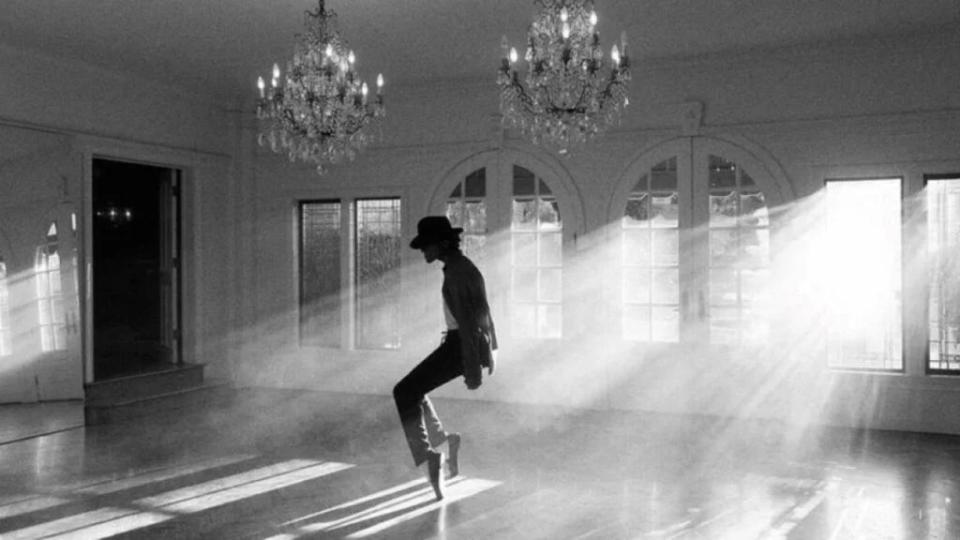After Elvis, Elton and Bob Marley, Music Biopics Are Hollywood’s Latest Theatrical Trend
- Oops!Something went wrong.Please try again later.
- Oops!Something went wrong.Please try again later.
- Oops!Something went wrong.Please try again later.
- Oops!Something went wrong.Please try again later.
- Oops!Something went wrong.Please try again later.
- Oops!Something went wrong.Please try again later.
With $120 million in theatrical receipts worldwide, “Bob Marley: One Love” is the latest in a growing list of hit music biopics at the box office, with more than a half-dozen such films now in the production pipeline covering artists from Amy Winehouse to The Beatles.
“When you see films like ‘Bohemian Rhapsody’ and ‘Rocketman’ absolutely crushing it at the box office and with critics, it’s hard not to want more,” said POV Agency managing partner Pilaar Terry. “It’s like a snowball effect, with each successful biopic leading to more interest and more films being made. We all know that once Hollywood figures out a winning formula that they’re likely to tap into it again and again.”
Which Hollywood is certainly doing.
The success of projects like “One Love” and Baz Luhrmann’s 2022 Oscar-nominated “Elvis” is fueling a steady pipeline. In May, Focus Features will release “Back to Black,” Sam Taylor-Johnson’s biopic about the late singer-songwriter Amy Winehouse. Cameras are set to roll later this year on Lionsgate’s “Michael,” Antoine Fuqua’s Michael Jackson biopic with the pop star being played by his nephew, Jaafar; and on “A Complete Unknown,” which will see the white-hot Timothée Chalamet play Bob Dylan under the direction of James Mangold.
And just this past week, Sony Pictures and Sam Mendes announced four separate films about each of the members of The Beatles that will all hit theaters in 2027.

Other biopics in early development include a Paramount project on the Bee Gees that Ridley Scott is in talks to direct and a biopic of Joni Mitchell that the singer-songwriter is directly involved in making with “Almost Famous” director Cameron Crowe.
“One Love,” which has taken in $71 million in two weeks in North America — in an otherwise difficult box office environment — is on pace to become the fifth music biopic to gross over $100 million at the domestic box office (before inflation adjustment). Three of the other four films are: the 2015 N.W.A. biopic “Straight Outta Compton” ($161 million), “Elvis” ($151 million) and the 2018 Freddie Mercury smash hit “Bohemian Rhapsody” ($216 million), which previously held the record for the highest-grossing biopic of any kind before “Oppenheimer” broke it last year.
The enduring success of music biopics isn’t anything new. The format has yielded box office hits and acclaimed performances as far back as Barbra Streisand playing Fanny Brice in “Funny Girl” in 1968 and Sissy Spacek as Loretta Lynn in “The Coal Miner’s Daughter” in 1980.
But with studios and theaters still searching for the box office consistency they enjoyed prior to the COVID-19 pandemic, any genre that can provide a reliable source of revenue is more than welcome. And with the wide range of musical tastes to which these films can appeal, they can target different demographics of moviegoers without over-saturating them.
“With the musical legacy that has come to bear with some of these biopics with subjects like Bob Marley, we might be in a period where, even though the genre goes back to ‘The Benny Goodman Story,’ the consistency of quality in these films is creating a very high interest to see more of them, and the wide range of music styles opens such biopics to a variety of possibilities in filmmaking style,” said Comscore analyst Paul Dergarabedian.
So what is it that makes music biopics work so well? In an era where familiar IP reigns over all in theaters, a popular tune can become as much of a box office draw as any pop culture icon. This is especially the case for films like “Elvis” and “Bohemian Rhapsody,” major studio offerings that had a unique appeal to older moviegoers who don’t get tentpoles aimed towards them at the rate that younger cohorts do.
Another advantage of these music biopics is that they can be made at a considerably lower budget than other tentpoles. Of the recent hits in the genre, “Elvis” carried the highest production spend at a reported $85 million. “Bob Marley: One Love” was produced for a $70 million price tag, and “Bohemian Rhapsody” was even cheaper at $55 million.
Biopics are also fueling music streams
But there’s another big factor in the rise of these biopics — music streaming. The rush to make more music biopics come as the music industry has been encouraging Hollywood to make films that will exploit the catalogs of big artists as the labels look to music streaming revenues to fill the gap left by plummeting physical sales of CDs and digital downloads.
The Mangold/Chalamet Bob Dylan biopic comes just a few years after the folk songwriter sold his catalog of compositions to Universal Music Group and his catalog of recorded music to Sony Music in deals each estimated to be worth at least $200 million. With Mangold hinting that Chalamet will sing in his performance as Dylan, that biopic will require clearing the music rights to Dylan’s music in what will be a transaction certainly worth millions.
Sony has the rights to the Beatles catalog, which is certainly driving the business logic behind the Mendes project of four films.
”One of the coolest things about these biopics is that they introduce iconic music to new generations,” said Terry. “It’s like these films breathe new life into the music we already love, while also introducing it to a whole new audience.”
After “Bohemian Rhapsody” came out in 2018, Queen’s annual catalog streaming consumption more than quadrupled in 2019 to 3.58 million units, Billboard reported. Queen is close to selling its catalog for more than $1 billion, the magazine reported earlier this month, a deal sources said will include revenues from the film.
“We have seen an incredible number of deals from musicians who sell their catalogs to set their families up for generations to come, and the film rights to that music will bring millions to their estates,” Dergarabedian said. “I’m sure that when ‘Maestro’ came out on Netflix, there was probably a surge in interest in the music of Leonard Bernstein that hasn’t been seen in decades.”
And that’s not all that can get introduced to a new audience. If the music and the artist being featured is the big draw, then music biopics have the freedom to cast someone in the lead role who isn’t a recognizable movie star. While musicals like “The Greatest Showman” and the upcoming “Wicked” need to prominently feature the likes of Hugh Jackman and Ariana Grande as a major part of their marketing, a biopic about a musician can pick up a rising star like Austin Butler in “Elvis” or Kingsley Ben-Adir in “Bob Marley: One Love” and elevate them, making such films appealing to up-and-comers and their agents.

That said, the genre still comes with risks. Just over a year ago, the Whitney Houston biopic “I Wanna Dance With Somebody” failed to leave much of a mark despite its Christmas 2022 release, grossing just $59.8 million at the global box office.
Though Houston maintains a passionate fanbase well after her death in 2012, one agent who spoke to TheWrap anonymously said that not enough time had passed between then and now for interest to build in a film about her life as opposed to the likes of Marley and Mercury, who died decades ago.
“The audience was already very familiar with her story,” the agent said. “The successful films are about artists who are no longer around to tell their stories or who Gen Z is not familiar with.”
That is indeed the common thread between biopics about Bob Marley, Elvis Presley and Freddie Mercury, and could signal potential hurdles for a film like “Back to Black.” Amy Winehouse has built a Buddy Holly-esque legacy as a talented musician who died far too young, but some question whether she is still too recent a musical figure to garner mass interest in a film about her life.
While Michael Jackson’s death in 2009 is also not too far removed, the pop legend has left a massive footprint on global culture. His songs have become the basis for a Tony-winning musical and a Cirque du Soleil Las Vegas show, while his sexual abuse allegations became the basis of the 2019 doc “Leaving Neverland,” which won critical acclaim while facing protests and backlash from Jackson’s fans.
“Michael” may be able to reach the heights of “Bohemian Rhapsody” if the film can hit that balance of pleasing Jackson’s fans with show-stopping re-enactments of his songs and performances while intriguing other moviegoers with how it addresses the scandals that surrounded the later half of his life. While the details change with the musician being featured, all music biopics have to find that sweet spot in order to find box office riches.
Kristen Lopez and Umberto Gonzalez contributed to this story.
The post After Elvis, Elton and Bob Marley, Music Biopics Are Hollywood’s Latest Theatrical Trend appeared first on TheWrap.

